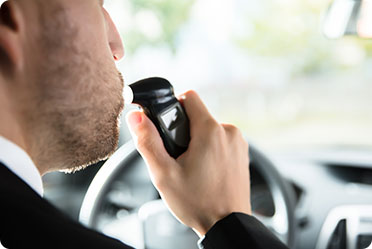
According to reports, Philadelphia police have been using improperly calibrated breathalyzer machines which may affect up to 1,000 DUI cases in Philly.
A private attorney from Port Richmond notified the department Wednesday that the police were using calibrations that had legally expired. The statement was given Thursday evening by police spokesman Lt. John Stanford. Stanford also stated that all instruments were immediately removed from service as a result of the discovery. They were returned to service the same day after being properly calibrated.
The District Attorney’s Office was asked by the department to conduct a review of the cases which involved tests based on the improperly calibrated breathalyzer machines. Cases dating from 17 January to 29 June were involved in the review.
Seth Williams, a spokesman for the District Attorney, could not be reached for comment Thursday night.
According to the attorney who notified the department, approximately 500 to 1,000 cases were estimated to be affected as a result of the improper calibrations. These machines have to be calibrated by the department on an annual basis using bottled solution which is provided by outside companies. Updated solutions have to be used for calibrations to help establish that the blood alcohol readings are accurate.
Stanford further added that “due to human error,” the department used an expired solution in January. Although the machines were still reading accurately, the use of the expired solution will allow defense attorneys to argue that the tests are inadmissible in court.
Additional measures will be put in place by the department to ensure and “increase efficiency and reduce oversight,” said Stanford. “While no organization is proud of errors, we do appreciate the attorney bringing this to our attention. Optimum service to our citizens is not an option; therefore, we have quickly rectified this matter and we remain committed to exceeding minimum standards set by policing guidelines,” he added.
Despite the improper calibrations, pending cases can still be tried in court without the tests. In these cases, the prosecutor can have the arresting officer testify that the driver was generally impaired, and was showing signs of impairment such as unsteady gait, slurred speech, and an odor of alcohol on their breath.
A similar situation was faced by the police and prosecutors in 2011 when improper calibrations were found. In that case, the machines were actually giving bad readings.
Affected defendants were notified by the District Attorney’s Office via mailed letters. Moreover, a courtroom was set aside one day a week for hearings on petitions for new trials.
News Source: www.Philly.com
Leckerman Law focuses on safeguarding the
rights of individuals charged with DUI, DWI, DAI, and
other alcohol-related criminal offenses - Call Us Now For
NJ DWI (856) 429-2323 | For PA DUI (215) 496-9292